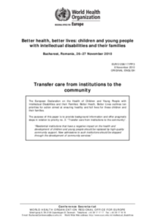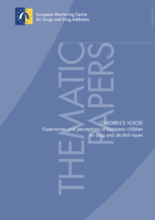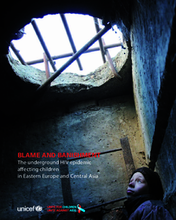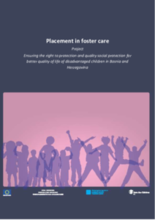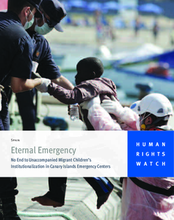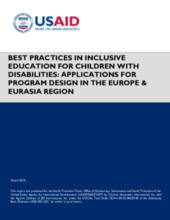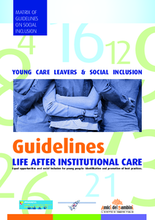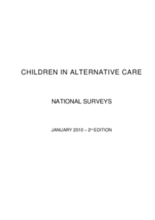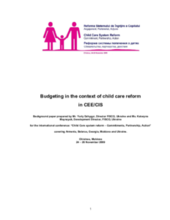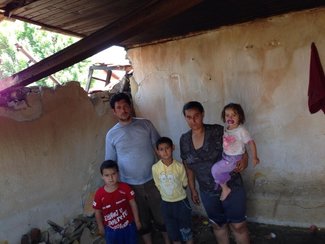

Displaying 491 - 500 of 544
The purpose of this paper is to provide background information and offer pragmatic steps in relation to priority no. 3 of the European Declaration on the Health of Children and Young People with Intellectual Disabilities and their Families: “To transfer care from institutions to the community”. The paper was produced in preparation for the conference in Bucharest, Romania 26-27 November, 2010.
The purpose of this paper is to give meaning and insight into some of the key drug and alcohol issues that affect children from the perspectives of the children themselves. Research shows that large numbers of children who are separated from their parents are particularly vulnerable to developing drug and alcohol problems. Special attention is paid throughout the report on children looked after by relatives, foster carers, and institutions.
An eye-opening analysis of the social, economic, political and family problems contributing to an overwhelming HIV epidemic that disproportionately affects young people, adolescents and children.
This document contains the minimum standards for placing children in foster care in Bosnia and Herzegovina. The Minimum Standards includes service specifications, instruments for monitoring compliance with standards, and guidelines for use of the minimum standards for day centers for children with developmental disabilities.
The Canary Islands were in the spotlight of international media attention in 2006 when more than 30,000 migrants arrived in rickety boats from West Africa. Among them were 928 children who arrived without a parent or care-giver.
The purpose of this study is to provide an overview of best practices in inclusive education, inform stakeholders of the current status of inclusive education in the region, describe the contextual factors which affect program implementation, and make recommendations of practical start-up steps for inclusive education programs.
In response to the increased social exclusion affecting youth leaving care, Amici de Bambini developed Matrix of Guidelines for Life after Institutional Care, which can be used to increase the likelihood of social inclusion for young people who have been released from the child protection system.
This book features individual empirical studies on the outcomes and progress made for children in foster care around the world.
In 2009 Eurochild carried out a survey of the situation of children in alternative care in Europe through its member organisations. The survey was not intended as a scientifically rigorous research exercise but rather to identify what information is readily available and to note some common trends across Europe.
Summarizes main issues in public financial management which have prevented resource reallocation between residential and alternative care services for children.

